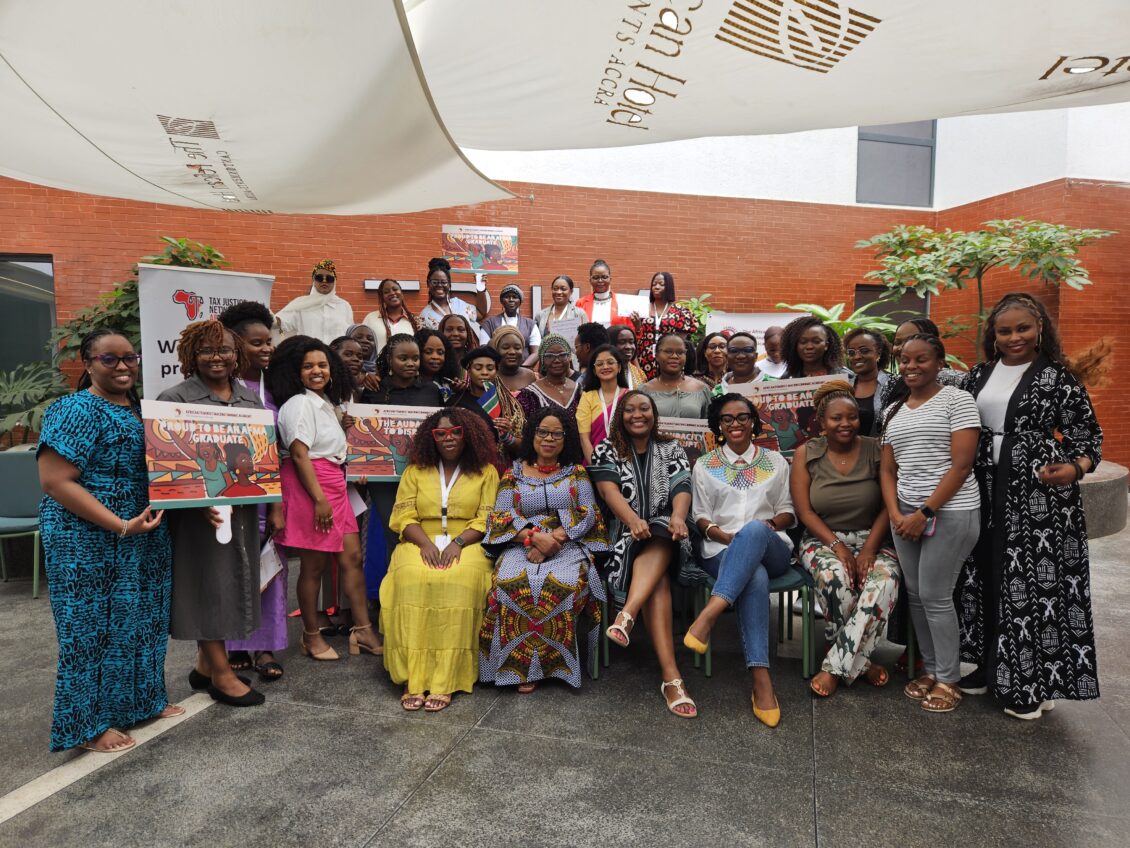Attendees and organisers of the 2025 African Feminist Macroeconomic Academy.
The 2025 Africa Feminist Macroeconomic Academy (AFMA), convened by the African Women’s Development and Communication Network in partnership with Tax Justice Network Africa, NAWI Collective and the Global Alliance for Tax Justice (GATJ), took place at a critical time for Africa and the world. With governments across the Global South facing shrinking aid, rising debt distress, and mounting pressure to mobilise resources, debates on taxation and fiscal justice have become central to development. Yet, without a feminist lens, these debates risk reproducing the very inequalities they claim to address. Given this context, AFMA 2025 was held from August 18 – 22 under the theme “A Feminist Approach to Tax Justice: Reclaiming Public Resources for Gender and Economic Justice.
“Every loophole that allows corporations to escape taxes is a classroom unfunded, a clinic unbuilt, a childcare centre that never opens. Every tax break for the wealthy is another hour of unpaid care shifted onto women. Feminist tax justice is about reclaiming those resources to fund the essential public services — healthcare, childcare, education — that sustain life and enable equality,” shared Maureen Mburu, GATJ Tax and Gender Lead & Africa Campaigns Coordinator, on the importance of AFMA 2025.
This year’s academy created a space for African feminist advocates, researchers, and movements to deepen their macroeconomic knowledge, interrogate how tax systems impact women, and position themselves as key actors in shaping national, regional, and global tax justice agendas.
The 2025 AFMA was particularly significant as it preceded the November session of the Framework Convention on International Tax Cooperation (UN Tax Convention) taking place in Nairobi. These negotiations represent a historic opportunity to create fairer global tax rules that could fund essential public services such as healthcare, childcare, and education — services on which women disproportionately rely.
Mburu emphasized, “The upcoming UN Tax negotiations in Nairobi are a critical advocacy moment. They are not just a diplomatic milestone — they are an opportunity for African feminist activists to shape a global framework that could transform how resources are mobilised and distributed. We cannot afford to be absent from this space.”
By convening feminist movements, AFMA not only strengthened advocacy at national and regional levels, but also ensured that African women’s voices and priorities were positioned to influence global economic governance. The Academy concluded with clear calls to action and strategies for engagement. Mburu highlighted three important ways for African feminists to continue building upon the work of AFMA:
- Engage your representatives to support gender-transformative provisions in the UN Tax Convention negotiations as well as in regional, national, and local policy.
- Amplify feminist voices in national, regional, and global spaces. This includes ensuring gender experts are a part of your governments’ respective delegations to the UN Tax Convention negotiations.
- Join civil society platforms: the Africa CSOs Forum coordinated by TJNA, and the UN Tax Working Group & Tax and Gender Working Group coordinated by GATJ.
_
To learn more about AFMA or get involved in the Working Group reach out to Maureen Mburu at [email protected].
